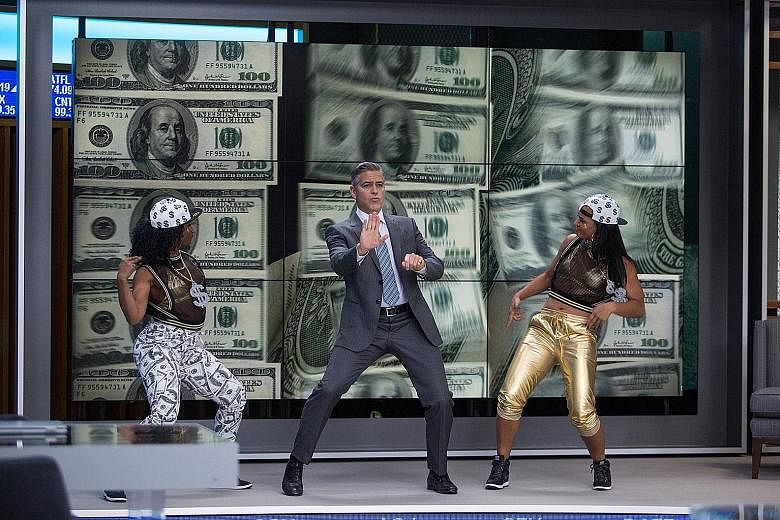REVIEW / DRAMA-THRILLER
MONEY MONSTER (M18)
99 minutes/Now showing/2.5 stars
The story: Lee Gates (George Clooney) is the host of Money Monster, a stock tips show. Disgruntled viewer Kyle Budwell (Jack O'Connell) breaks into the set to take Gates hostage, blaming the presenter for tricking him and the public into losing millions.
Americans such as comedian-talk show host Jon Stewart and lefty film-maker Michael Moore love to point out that in the United States, the idea of "too big to fail" has led to ludicrous miscarriages of justice - no bank executive of any importance went to jail for the 2008 subprime mortgage crisis, even as thousands of people had their homes foreclosed.
Television shows such as CNBC's Mad Money, presented by Jim Cramer, are just as much to blame for the crisis, says Stewart, for popularising the idea of the stock market as a sports betting arena.
Enter cinema, giving justice on film when none was available in real life. Dramas such as 99 Homes (2014) and The Big Short (2015) gave faces to those who were ruined, and names to the executives who got away with it.
In Money Monster, co-produced by Clooney's Smokehouse Pictures, the financial melt-down is re-imagined as farce, but with tragic undertones.
Gates (Clooney) is the clown prince of financial advice, who on his show, Money Monster, hypes stocks with zany abandon.
That go-go emphasis on the upside has consequences when Monster fan Kyle (O'Connell) loses his life savings during a sudden downturn, a fact which Gates and his rich friends dismiss as a "glitch in the algorithm" during a session of high-volume trading.
Kyle decides to seek justice, vigilante-style.
It would have been fine if the story had stayed there, as a neat one-room drama about rich America facing the poor at the end of a gun.
But actress-turned-director Jodie Foster (who does not appear on screen) unfortunately lets the script run away into thriller-land, punctuated by speeches about corporate greed and its global consequences.
By the end, the story is made soggy with moral equivocation from Julia Roberts as news director Patty, representing the face of cable television that has a conscience, and Irish actress Caitriona Balfe doing the same for corporations as corporate bigshot Diane Lester.
If only the movie had stuck to the promise it showed in the first 20 minutes.


